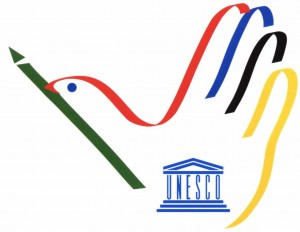 Before finishing my breakfast this morning, I had read through the A section of the Washington Post, checked three cable news and network morning shows for major headlines, and read stories on six different news sites recommended by colleagues and friends via email and social media. By the time I go to bed tonight, I cannot tell you how many news sources I will have consumed. Staying informed about the latest news in Washington, on international affairs, and from around the U.S. is central to my job, my life, and my community. Yet I rarely think about what it would be like to live without a free press.
Before finishing my breakfast this morning, I had read through the A section of the Washington Post, checked three cable news and network morning shows for major headlines, and read stories on six different news sites recommended by colleagues and friends via email and social media. By the time I go to bed tonight, I cannot tell you how many news sources I will have consumed. Staying informed about the latest news in Washington, on international affairs, and from around the U.S. is central to my job, my life, and my community. Yet I rarely think about what it would be like to live without a free press.
This issue matters, and it takes a global organization to maintain a global focus on the Fourth Estate. This week the United Nations Educational, Scientific, and Cultural Organization (UNESCO) marks World Press Freedom Day to celebrate the principals of press freedom and point a spotlight on threats to a free press anywhere in the world. With the theme “Media Freedom has the Power to Transform Societies,” UNESCO is holding a major conference in Tunisia, and dozens more events around the world.
Governments and nongovernmental organizations around the world are using this week to emphasize the importance of press freedom, to spotlight challenges to a free press, and to support media who have been the victims of censorship, imprisonment, exile, and violence. At HumanRights.gov, the U.S. State Department is highlighting journalists who have suffered from these threats and calling on all governments to protect the universal human right to freedom of expression.
I encourage you to take a few minutes this week to think about what your life would be like without a free press. Where would you turn for trusted information? Would governments respond to the needs of citizens if journalists did not disseminate information about the priorities and programs of government agencies and officials? How would your life be different if the news you could access was filtered and censored by your government, even online and on social media?
The free press allows us access to multiple sources of information, from multiple perspectives. It puts power in the hands of citizens. Freedom of the press is core to democracy.
Today I will take a few minutes to be grateful for the benefits I enjoy because I have access to a free press. Then I will think of the individuals and institutions around the world who work to exercise and defend freedom of the press. Finally, I will tip my hat to UNESCO for its global leadership on an issue of paramount importance: “establishment, maintenance and fostering of an independent, pluralistic and free press” (Source: Declaration of Windhoek). In this, I hope you’ll join me. You can raise your voice in support of UNESCO and a strong U.S.-UN relationship by signing our online petition today.

